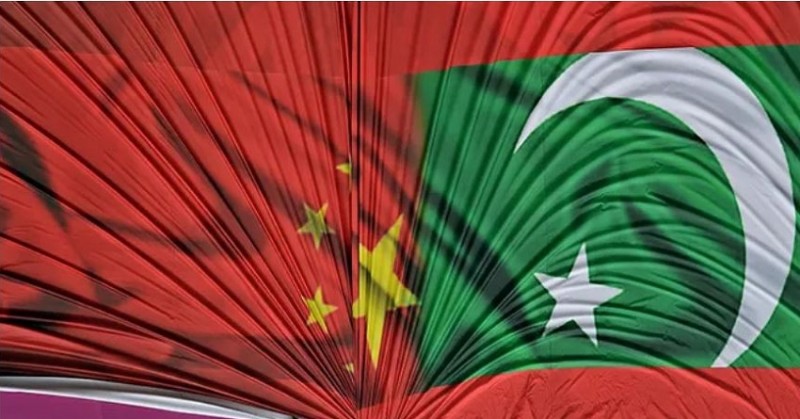
As a Pakistani delegation heads to Beijing to request reduced interest rates and extended debt repayment periods for China-Pakistan Economic Corridor (CPEC) energy projects and nuclear power plants, Chinese companies have firmly rejected renegotiating power purchase agreements.
In a briefing to President Arif Alvi, representatives from three major Chinese companies emphasized that any decision to restructure the energy debt should be made between Chinese banks and Pakistani authorities. They dismissed the idea of altering their profit terms and idle capacity payments agreed upon in the Power Purchase Agreements.
Finance Minister Muhammad Aurangzeb is set to meet Chinese officials today to seek extensions for debt repayments taken by both the Pakistani government and Chinese companies for establishing power plants. Pakistan borrowed funds to build nuclear power plants, while Chinese firms used loans for CPEC power projects. According to a Power Division official, the outstanding debt for these projects is approximately $17 billion.
Pakistan has proposed an up to 8-year extension on energy debt repayments, switching the lending currency from the US dollar to the Chinese Yuan, and requesting interest rate cuts. If accepted, these concessions could reduce electricity prices by Rs6 to Rs7 per unit, with Chinese power plants contributing Rs3 to Rs4 per unit.
Pakistan seeks to switch interest instruments from the Secured Overnight Financing Rate (SOFR) to the Shanghai Interbank Offered Rate (SHIBOR) and reduce the interest spread above these rates. This move could lower debt costs by about 5%.
The government is also asking for an additional 5 to 8 years to repay the debt, extending the total repayment period to 18 years. This year, Pakistan is scheduled to repay over $2 billion in energy debt to China, a payment it hopes to delay for financial relief.
A new electricity price of Rs33 per unit was implemented in July, with Rs18 per unit attributed to idle capacity payments. There is pressure from industrial and residential consumers to avoid these payments by reopening Power Purchase Agreements. However, the government, a major beneficiary of these payments, is unlikely to do so, as are the Chinese plants.
Executives from the Sahiwal, Port Qasim, and China-Hubco power plants, which have a combined capacity of 3,960 megawatts, said the 2014 energy policy forms the foundation of their investment in Pakistan. They pointed out that 10 years ago, Pakistan faced daily power outages of 10 to 14 hours, deterring even local investors from the energy sector.
The core issues include high line losses, theft, and low recoveries, not the Chinese companies. They highlighted that their electricity costs are still lower than government-owned LNG-based power plants. According to the government's merit order on July 16, the Port Qasim plant produced electricity at Rs13.88 per unit, ranking 15th, China-Hub at Rs13.93 per unit, ranking 16th, and Sahiwal at Rs18.30 per unit, ranking 20th among 74 plants.
Government-owned plants produce electricity at over Rs24 per unit. Chinese executives stressed that the return on equity for their investments is not higher than prevailing interest rates in Pakistan. They also noted that due to Pakistan's foreign currency crisis, they couldn't transfer dividends to their parent companies, eroding their profits.
Port Qasim Power Plant officials stated that they have been making regular debt payments since the plants' commissioning and that most debts have already been repaid. Any restructuring decision must be made by the banks and their insurer, Sinosure, not the energy companies.
Chinese companies have submitted a report on reducing energy costs in Pakistan, but no progress has been made. They warned that reopening decade-old deals would send negative signals to Chinese investors. They also emphasized that any conversion from local to imported coal should be based on scientific and financial feasibility.
Former interim commerce minister Gohar Ejaz announced that the Federation of Pakistan Chambers of Commerce and Industry (FPCCI) would approach the Supreme Court to challenge agreements with Independent Power Producers (IPPs). However, previous court interventions, such as in the Reko Diq mining deal, resulted in a $6 billion penalty for Pakistan, leading to an out-of-court settlement.
Recent Updates: